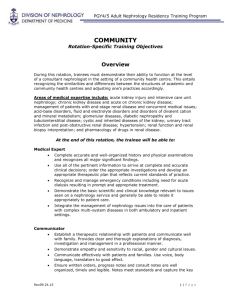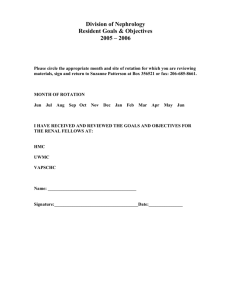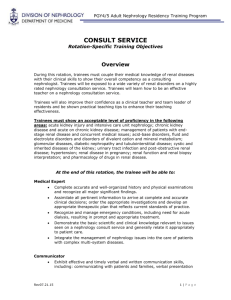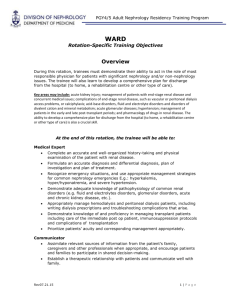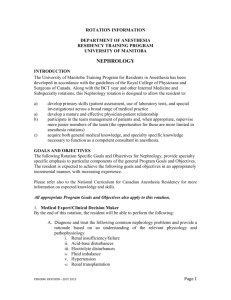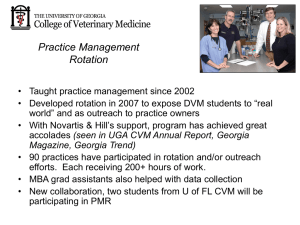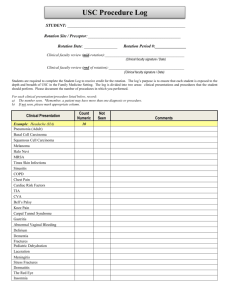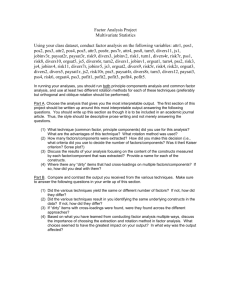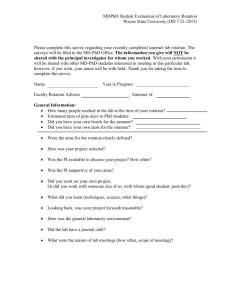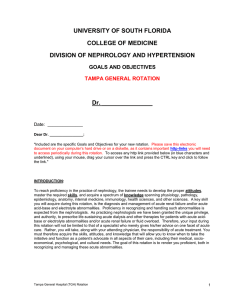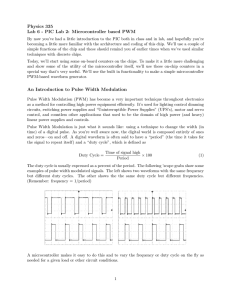Ambulatory
advertisement
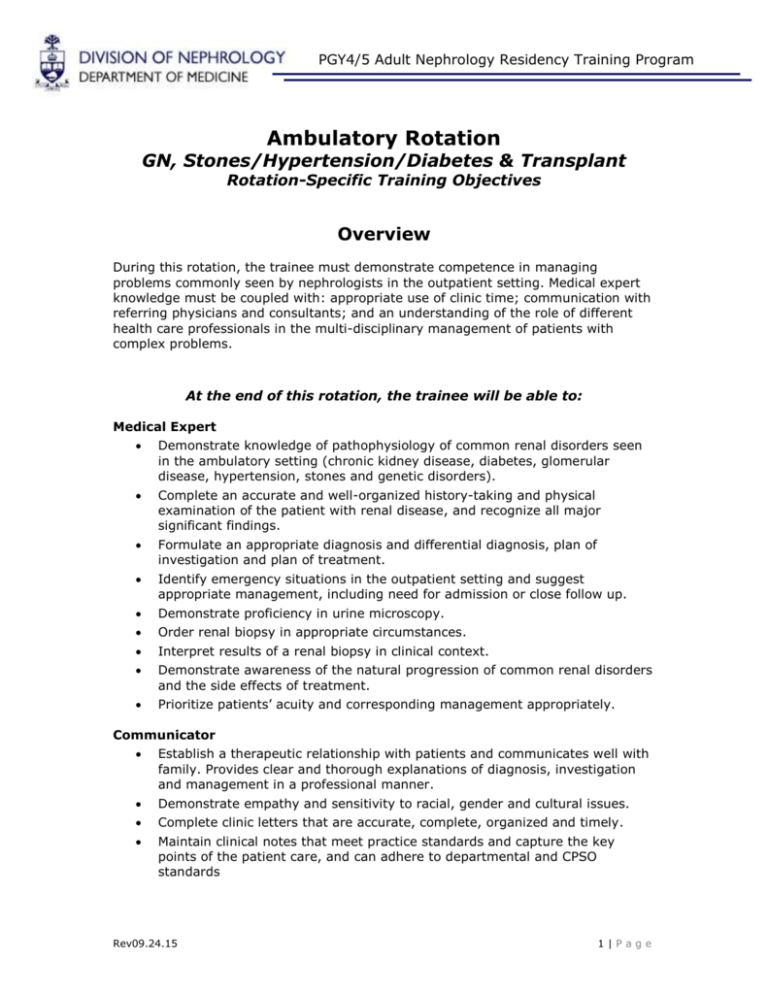
PGY4/5 Adult Nephrology Residency Training Program Ambulatory Rotation GN, Stones/Hypertension/Diabetes & Transplant Rotation-Specific Training Objectives Overview During this rotation, the trainee must demonstrate competence in managing problems commonly seen by nephrologists in the outpatient setting. Medical expert knowledge must be coupled with: appropriate use of clinic time; communication with referring physicians and consultants; and an understanding of the role of different health care professionals in the multi-disciplinary management of patients with complex problems. At the end of this rotation, the trainee will be able to: Medical Expert Demonstrate knowledge of pathophysiology of common renal disorders seen in the ambulatory setting (chronic kidney disease, diabetes, glomerular disease, hypertension, stones and genetic disorders). Complete an accurate and well-organized history-taking and physical examination of the patient with renal disease, and recognize all major significant findings. Formulate an appropriate diagnosis and differential diagnosis, plan of investigation and plan of treatment. Identify emergency situations in the outpatient setting and suggest appropriate management, including need for admission or close follow up. Demonstrate proficiency in urine microscopy. Order renal biopsy in appropriate circumstances. Interpret results of a renal biopsy in clinical context. Demonstrate awareness of the natural progression of common renal disorders and the side effects of treatment. Prioritize patients’ acuity and corresponding management appropriately. Communicator Establish a therapeutic relationship with patients and communicates well with family. Provides clear and thorough explanations of diagnosis, investigation and management in a professional manner. Demonstrate empathy and sensitivity to racial, gender and cultural issues. Complete clinic letters that are accurate, complete, organized and timely. Maintain clinical notes that meet practice standards and capture the key points of the patient care, and can adhere to departmental and CPSO standards Rev09.24.15 1|Page PGY4/5 Adult Nephrology Residency Training Program Collaborator Communicate effectively with multidisciplinary team. Demonstrate knowledge of and respect for the individual team members’ contributions and roles in the care of patients with ESRD/CKD. Leader Allocate health care resources for optimal patient care. Set priorities and manage time to integrate practice and personal life. Carry out appropriate clinical services in the context of limited resources, limited expected lengths of stay, and limited time available for the resident. Health Advocate Demonstrate awareness of the costs of tests and demonstrate sensitivity to inconvenience and discomfort to patient. Intervene on behalf of patients or the community with respect to the social, economic and biologic factors that may impact on their health Scholar Develop a plan for self-improvement Maintain and enhance professional activities through ongoing learning. Critically evaluates medical information and its sources, and applies this appropriately to practice domains. Professional Carry out duties in a professional manner Demonstrate a commitment to patients and their families, as well as to their profession and to society, through ethical practice. Demonstrate professional behaviour including timeliness, honesty, compassion and reliability. Respect personal/professional boundaries with patients, residents, faculty. Demonstrate a commitment to excellence in clinical care and personal ethical conduct. Exhibit proper professional behaviour, including adhering to legal and ethical codes of practice Ambulatory Rotation Curriculums Please see Appendix A for a comprehensive GN rotation curriculum Please see Appendix B for a comprehensive Stones/Hypertension/Diabetes rotation curriculum Please see Appendix C for a comprehensive Transplant rotation curriculum Rev09.24.15 2|Page PGY4/5 Adult Nephrology Residency Training Program Reviewed & approved by RPC Date Rev09.24.15 3|Page
